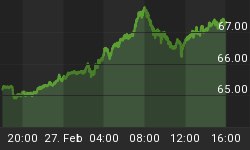These are frustrating times for the President. Having been swept into office with a seemingly strong mandate, he enjoyed a Congress controlled by members of his own party for the first two years of his term. However, midterm elections brought gridlock and a close division of power between the two parties. With a crucial re-election campaign coming up, there is desperation in the president's desire to "do something" in spite of his severely weakened mandate.
Getting something done is proving to be a monumental task. This may be news to the supposed constitutional scholar who is now our president, but if the political process seems inconvenient to the implementation of his agenda, that is not a flaw in the system. It was designed that way. The drafters of the Constitution intended the default action of government to be inaction. Hopefully, this means actions taken by the government are necessary and proper. If federal laws or executive actions can't be agreed upon constitutionally- which is to say legally- such laws or actions should be rejected.
The vision of the founders was to set up a government that would remain small and unobtrusive via a system of checks and balances. That it has taken our government so long to get this big speaks well of the original design. The founders also knew the overwhelming nature of governments was to amass power and grow. The Constitution was to serve as the brakes on the freight train of government.
But the Obama administration, like so many administrations in the 20th century, chooses to ignore the Constitution entirely. The increasingly broad use and scope of the Executive Orders is a prime example. Executive Orders are meant to be a way for the president to direct executive agencies on the implementation of congressionally approved legislation. It has become increasingly common for them to be misused in ways that are contradictory to congressional intent, or to bypass Congress altogether in enacting political agendas. The current administration has unabashedly stated that Congress's unwillingness to pass the president's jobs bill means that the president will act unilaterally to enact provisions of it piecemeal through Executive Order. Obama explicitly threatens to bypass Congress, thus aggregating the power to make and enforce laws in the executive. This clearly erodes the principles of separation of powers and checks and balances. It brings the modern presidency dangerously close to an elective dictatorship.
Of course, the most dangerous and costly overstepping of executive authority is going to war without a congressional declaration. Congress has been sadly complicit in this usurpation by ceding much of its war-making authority to the executive because it wants to avoid taking responsibility for major war decisions, but that is part of our job in Congress! If the President cannot present to Congress and the people a convincingly strong case for going to war, then perhaps we should keep the nation at peace, rather than risk our men and women's lives for ill-defined reasons!
This administration certainly was not the first to behave in ways that have defied the Constitution to overstep its bounds. Sadly, previous administrations have set precedents that the current administration is only building upon. It is time for Congress to reassert itself and its constitutional role so that future administrations cannot continue on this dangerous path.















